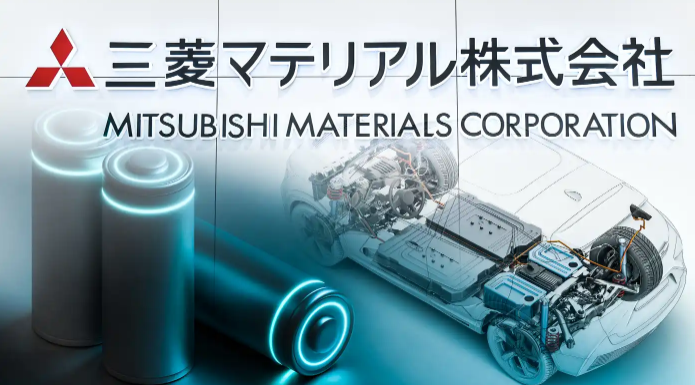Mitsubishi Materials to recycle rare metals from used EVs
페이지 정보

조회 268회 작성일 23-04-10 16:14
본문
Mitsubishi Materials to recycle rare metals from used EVs
Japan company looks to extract cobalt, lithium to cut overseas dependence

Mitsubishi Materials and its partner, Envipro Holdings, plan to have a commercial lithium-ion battery recycling business up and running by fiscal 2025. (Source photo by Shihoko Nakaoka)
TOKYO -- Mitsubishi Materials will begin commercial recycling of rare metals such as cobalt and lithium from used lithium-ion batteries taken from electric vehicles, starting in fiscal 2025, Nikkei has learned. The Japanese company aims to increase its processing capacity to 6,000 tonnes per year by around fiscal 2030.
It is technically difficult to extract lithium and other materials at low cost, especially from lithium-ion batteries. Used EV batteries are typically melted down and recycled for steel and other metals. Mitsubishi Materials and its partner, Envipro Holdings, will develop a technology to recover rare metals efficiently from batteries by soaking powder from batteries called "black mass" in sulfuric acid and other solutions. Mitsubishi Materials aims to improve the efficiency of the extraction process, drawing on its expertise in copper smelting.
Approximately 500 tonnes of cobalt can be recovered from 6,000 tonnes of black mass, depending on the composition of the batteries to be recycled. That is equivalent to the raw materials needed to power roughly 40,000 EVs by simple calculation.
Other major nonferrous metal producers are also expanding their recycling efforts, as the spread of EVs is expected to tighten supplies of rare metals. The Japanese battery industry aims to create a system to circulate resources within the country to avoid excessive dependence on resource-rich countries or other overseas exporters.
Lithium-ion batteries for EVs contain rare metals such as cobalt and lithium in their cathodes, but supplies are unstable. The Democratic Republic of Congo, in central Africa, accounts for 70% of cobalt production and is struggling with internal conflict and child labor issues. Lithium is relatively abundant, but it is difficult to increase production quickly and producers have not kept pace with demand.
Japan relies on imports of both cobalt and lithium for batteries, and the industry sees it as imperative to create a system to recycle resources domestically to foster widespread adoption of EVs.
Mitsubishi Materials and recycler Envipro Holdings hope to have their battery recycling business up and running in fiscal 2025. By 2030, the partners hope to raise annual processing capacity by two to three times to 6,000 tonnes.
The investment is expected to come to several billion yen, or tens of millions of dollars. The project will also collect used batteries from hybrid vehicles and home appliances, and is expected to gradually increase the share of used EV batteries that it collects. The recycled metals will be sold to producers of raw materials for batteries.
Japan's Dowa Holdings, through a subsidiary, will also set up a business to extract lithium and other rare metals from black mass as soon as in 2024, while JX Nippon Mining & Metals has started a demonstration project to recover high-purity nickel and cobalt, and will expand the scope of the project to include high-purity lithium by the end of fiscal 2022 ending in March this year. Sumitomo Metal Mining will commercialize recycling, including cobalt, as early as in fiscal 2024.
According to Tokyo-based research specialist Fuji Keizai, global EV sales will rise about twelvefold in 2035 from their 2021 level. Japan Energy and Metals National Corp. (JOGMEC) estimates global demand for lithium and nickel will exceed supply by around 2030 and in the late 2030s respectively, and that 1.3 billion kilowatt-hours of used batteries will need to be disposed of by 2040.
The European Union's proposed battery regulations set future recycling ratios for cobalt, lithium, and nickel in batteries and other components. In Japan, where EVs have been slow to take off, it will take time for recycled EV batteries to become widely available. But automakers need to start deepening their recycling know-how now.